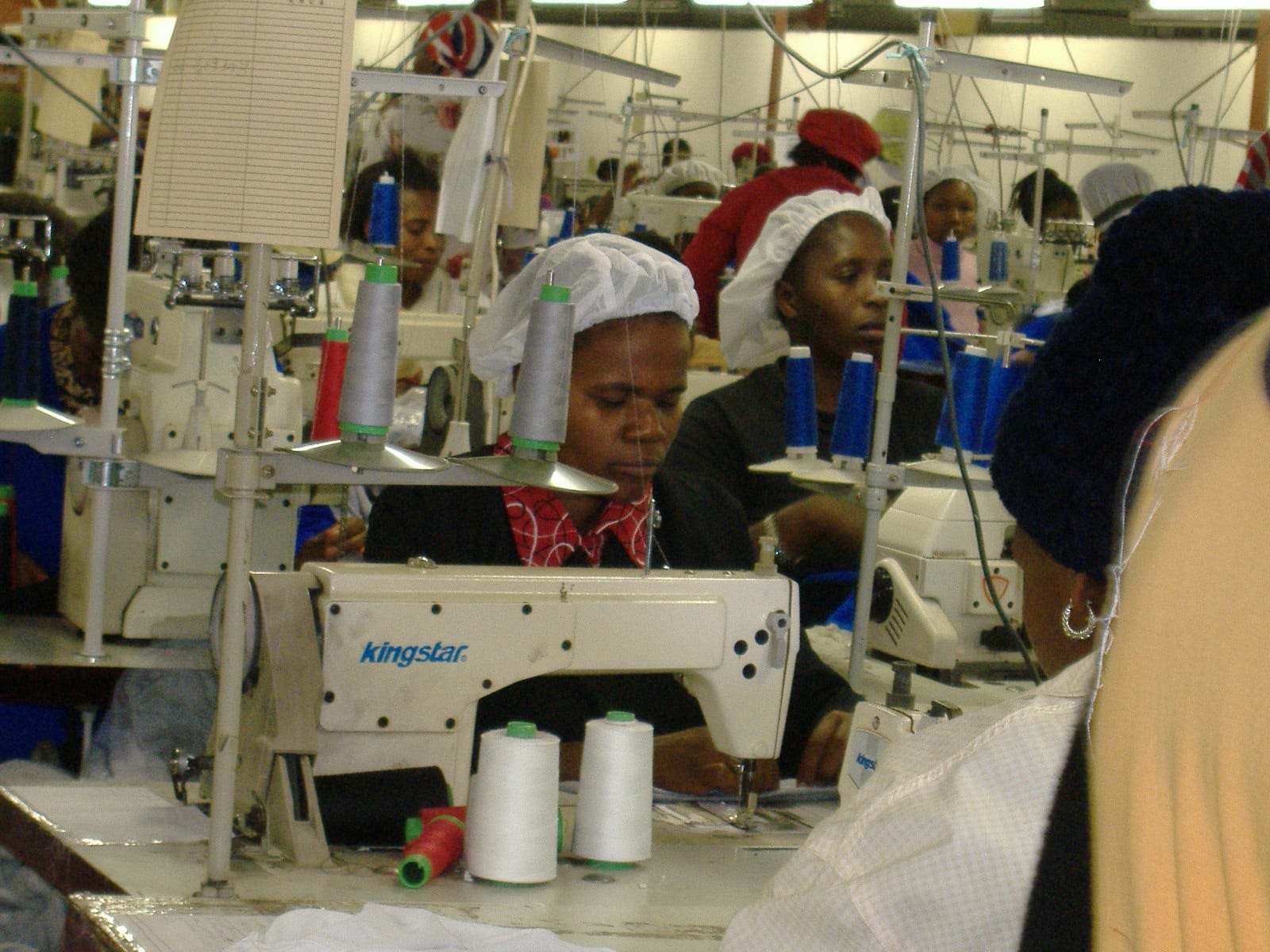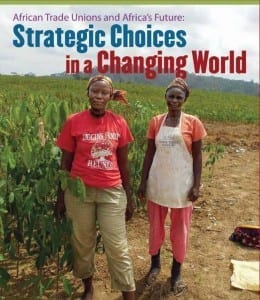Jul 30, 2014
The United Nations today marks the first-ever World Day against Trafficking in Persons, created to raise awareness and highlight the plight of the millions of women, men and children who are trafficked and exploited, as well as to encourage people to take action to end the scourge.
Forced labor is the most common motive behind human trafficking, with more than 21 million people trapped in often slave-like conditions. Forced labor generates $51 billion per year in illegal profits, according to the International Labor Organization (ILO).
In the Dominican Republic, where tens of thousands of Haitians have been trafficked over decades to toil as domestic workers and sugarcane harvesters, the constitutional court ruled last September that children born to undocumented parents between 1929 and 2010 were not entitled to Dominican citizenship, effectively leaving up to 200,000 children and grandchildren of migrant workers without citizenship in the only country many of them have ever known.
Following international outrage, the country recently enacted a “regularization” plan that recognizes some 60,000 migrants with documents. But in practice, says Ana Maria Belique, “officials still reject our documents.” Belique, program director for the Bono Center, a Jesuit social and educational organization, took part in a recent migration advocacy training with labor and migrant activists organized by the Solidarity Center.
In the 1950s and 1960s, the Dominican Republic signed a series of agreements with Haiti that covered seasonal Haitian labor in the government-owned sugar industry.
But because the Dominican Republic did not fulfill its commitment to repatriate migrant workers, the migrant laborer agreements essentially became legal instruments for trafficking Haitian labor. Migrant workers were settled on sugar refining lands and had no access to health care or education. These impoverished settlements, known as bateys, became home to the families of migrants who did not or could not return to Haiti. The lack of legal status and statelessness are internationally identified indicators that increase workers vulnerability to forced labor and other forms of trafficking.
Rather than granting citizenship to the descendants of those trafficked for back-breaking work in sugarcane fields, the regularization plan requires that they provide proof of birth through testimony from a hospital, family member or priest before beginning the long process of “naturalization” with no guarantee of achieving residency. International law calls for children of migrants to automatically receive citizenship from the country where they were born.
The precarious situation of migrant workers under the laborer agreements allowed employers to put Haitian workers in conditions of forced labor through nonpayment of wages, restrictions on their freedom of movement, lack of health and safety regulations, lack of access to social services for migrants and their families and abusive working conditions. And as long as they are undocumented, migrants and their families are a source of low-wage labor.
“The international community should not be fooled by the Dominican government’s ill-named National Plan for Regularization and Naturalization,” says Eulogia Familia, vice president of the Confederaciün Nacional de Unidad Sindical (National Confederation of Labor Union Unity, CNUS). “It is a plan … to maintain them as a cheap labor force which is disenfranchised in the country they were born.”
CNUS and migrant worker rights organizations are working with the Solidarity Center to urge that the government recognize descendants of migrant workers as Dominican citizens in line with international standards for the rights of children. The Solidarity Center and its allies also are seeking to strengthen civil society protection for migrant workers through labor code reform and in coming months, will launch advocacy and visibility actions to raise awareness of the contributions to the Dominican Republic by Dominicans of Haitian descent and by all migrant workers.
The Dominican Republic is one of several countries where the Solidarity Center works to assist workers who have been trafficked, and is among dozens of countries where human trafficking takes place. You can show your support for victims of human trafficking by taking part in a UN-sponsored “thunderclap,” in which messages on a single topic are sent out through social media in a short timespan. By joining the thunderclap via Twitter, Facebook or Tumblr today, you can send a message expressing solidarity with human trafficking victims.

Jul 30, 2014
A recent survey by the Trade Union Congress of Swaziland (TUCOSWA) of more than 400 textile workers in Manzini, Swaziland, reveals that workers in the textile sector are subject to harsh and sometimes abusive conditions, many of the country’s labor laws are routinely violated by employers, and union activists are targeted by employers for punishment. (Download a PDF of this article.)
Surveys were collected by a team of five TUCOSWA union organizers from June 23–July 2, 2014. Workers from 18 of 28 textile companies in Manzini were represented in the survey and included sewing machine operators, pressers, quality controllers, packers, cleaners, trimmers, cutters and storeroom workers. The vast majority of respondents—94 percent—were women. And nearly a third of workers surveyed had post-secondary school education.
Notably, 91 percent of workers surveyed reported being punished by management for making errors, not meeting quotas or missing shifts. “I was a victim of physical abuse,” said one survey respondent. She is not alone. More than 70 percent of survey respondents reported witnessing verbal and physical abuse in their workplace by supervisors.
Some workers reported that supervisors slap or hit workers with impunity. In one example, a worker knocked to the ground by a line manager was suspended during an investigation of the incident while the line manager continued in her job.
Women reported instances of sexual harassment, as well. Several workers said they or other contract (temporary) workers were offered a permanent job in exchange for sex.
Nearly all workers—90 percent—reported having production quotas. Of these, more than 30 percent said they can never, or almost never, meet their quota, while more than 80 percent reported difficulty meeting their quota. According to the survey, punishments for not meeting quotas include suspension without pay, mandatory unpaid work through lunch breaks and verbal harassment.
Survey results also show that employer punishment of workers who are ill, injured or pregnant is common. More than 60 percent of workers said they knew someone who was fired for being sick or pregnant. Some respondents said any worker taking five sick days are automatically punished with three months forced unpaid leave.
The Swaziland Employment Act of 1980 guarantees maternity leave, prohibits termination for pregnancy and mandates 14 days paid sick leave per year under penalty to the employer of a fine or up to one year imprisonment.
Even though more than ninety percent of survey respondents believe a union would help them improve workplace conditions, survey responses show that most employers in the textile sector are hostile to unions. Eighty percent of respondents said their employer does not accept workers’ right to form a union while almost the same number reported knowing of union organizers, activists or leaders who were punished, fired or otherwise intimidated.
“Union members are victimized so I am scared to join,” said one worker.
Workers report that more than half of the clothing they produce is destined for U.S. and European stores.
In June 2014, Swaziland lost eligibility for benefits under the Africa Growth and Opportunity Act (AGOA) because the Swazi government had not demonstrated progress on the protection of internationally recognized worker rights, in particular, protecting freedom of association and the right to organize. The U.S. government, in announcing the rescinding of AGOA eligibility, also pointed out Swaziland’s “lack of legal recognition for labor and employer federations.”
TUCOSWA was formed in in January 2012 and registered by the Swazi government. The union federation was deregistered in April 2013, putting the government in violation of Convention 87 of the International Labor Organization Convention 87 which the government has ratified. Since deregistration intimidation of TUCOSWA leaders by government security forces has been widely reported, including arbitrary arrests, threats and assaults while in police custody.
.jpg) |
Safety Concerns @ Work:
Safety concerns: dust (causing respiratory problems), hot pipes, steam (causing burns), needle sticks, falling equipment and/or production materials.
Awareness:
Percent of workers who have seen other workers injured at work. |
.jpg) |
Aware of Union Intimidation:
Aware of union organizers, leaders, activists being punished, fired or otherwise intimidated. |
.jpg) |
Allowed Breaks:
No breaks during the day. Restroom breaks tightly controlled.Abused:
Verbal and physical abuse by supervisors.Job Loss due to Sickness or Pregnancy:
Workers who know of someone being fired for getting sick or pregnant. |
Jul 23, 2014

ITF-affiliated bus drivers in Gaza are among workers affected by the current conflict. Credit: ITF
On an ordinary working day, activists from the Palestinian General Federation of Trade Unions (PGFTU)-Gaza conduct labor rights education and outreach to worksites around Gaza. In the past six months, Organizing Department Head Ahmad Hillis and other union officials have visited more than 180 workplaces including hospitals, pharmacies, universities and construction sites. (Arabic version of this article here.)
Through one-one-one conversations, the organizers have documented exchanges with 234 workers and informally registered 54 new union members. (PGFTU-Gaza is not currently able to maintain offices or collect membership fees.)
Today, as the fighting rages, the union’s outreach work is different. Trade unionists spend their days checking on other families and injured persons, talking with employees and owners of razed workplaces, trying to provide assistance where they can and helping to get people to United Nations agencies and aid organizations, where they can receive lifesaving and other assistance.
In coordination with PGFTU sisters and brothers in the West Bank, and with Solidarity Center staff and colleagues from across the international labor movement, the PGFTU has worked tirelessly to develop the federation’s role as a representative civil society organization with a truly national reach.
The brave and peaceful work of these unionists serves a social movement for greater equality and respect for human rights.
The institutions of the international trade union movement have been speaking publicly about the ongoing Palestinian/Israeli conflict. For more information:
Jul 15, 2014
 The rapid economic growth of many African countries is not translating into good jobs or worker rights, especially for women, and worker organizations, governments and business must be more proactive in expanding employment and improving wages and social protections, according to a new Solidarity Center report.
The rapid economic growth of many African countries is not translating into good jobs or worker rights, especially for women, and worker organizations, governments and business must be more proactive in expanding employment and improving wages and social protections, according to a new Solidarity Center report.
“African Trade Unions and Africa’s Future: Strategic Choices in a Changing World” calls for measures to promote job creation, secure worker rights, invest in social and physical infrastructure and achieve gender equality.
Based on a 2013 survey of trade unionists in nine African countries, the report finds that trade unions have played a significant part in the political and economic lives of their countries, for instance by shaping policy around issues such as the minimum wage and social insurance coverage, and in promoting and defending democratic institutions.
But rapid globalization has created new challenges that will most effectively be solved through coordination among unions, government and business. Some of measures the report calls for include:
• Confronting obstacles to equal rights and equal participation for women. Sustainable development and inclusive economic growth are only possible when gender inequity, a key human rights component, is integrated throughout the process. Such actions should include opening up economic sectors and occupations that are still largely closed to women, as well as advancing education for women and social support for family obligations now primarily met by women.
• Taking innovative approaches to addressing the informal economy.National and global economic trends suggest that the proportion of workers in formal employment will continue to decrease. Worker associations and African governments need to share experiences and invest more resources to empower workers in the informal economy and extend social protections to informal-sector workers, especially women.
• Enforcing existing international worker rights standards. A broad body of international and national laws and standards protects workers and their rights, but they generally are not enforced, including by countries participating in programs like the Africa Growth and Opportunity Act (AGOA). As a result, workers are vulnerable to abuses such as unsafe and unhealthy workplaces, forced labor, lost wages, sexual harassment and workplace violence.
Released on the eve of the August 5–6 White House Africa Leaders Summit and the annual AGOA meeting, African Trade Unions and Africa’s Future serves as a clear call to action to the continent’s most powerful leaders and policymakers.
Jul 14, 2014
Tunisia is among many countries around the world seeing rapid growth in their informal economies. In 2013, Tunisia’s informal economy accounted for 38 percent of the country’s gross domestic product (GDP), up from 30 percent in 2010.
A new study by the Tunisian General Labor Union (Union Générale Tunisienne du Travail, UGTT) and the Solidarity Center looks at factors fueling the expansion of Tunisia’s informal economy and offers recommendations for helping workers in the informal sector get job security and social protections they often do not have as domestic workers, street vendors and construction workers.
“The Current State of the Informal Economy in Tunisia as Seen through Its Stakeholders: Facts and Alternatives,” incorporates data from a field survey of 1,128 informal economy workers conducted by 100 UGTT young worker volunteers. The study, which also synthesizes information from available data, provides a rare look at a growing global phenomenon in which work is increasingly outsourced, subcontracted, temporary and part-time—leaving workers with no benefits or social protections.
Among the report’s findings:
• Workers in Tunisia’s informal economy lack basic decent work conditions such as social protection, health insurance, professional security and union rights and freedom.
• Young workers are especially vulnerable. Because they are concentrated primarily in the tourism sector, their wages are low and they have little job stability.
• The rapid growth of the informal economy has resulted in an annual 7 percent fiscal loss to the Tunisian national budget, badly impacting public spending and blocking the expansion of worker economic and social rights.
As UGTT Secretary General Houcine Abbassi says in a foreword to the report: “Because the informal economy neither contributes to the nation’s fiscal base nor offers workers social security protection, it is a serious challenge that must be addressed so as to ensure a national economic recovery and decent working conditions and social justice for all workers.”
Tunisia’s National Economic Dialogue Commission on the Informal Economy has adopted the study as an official reference document and has referred to it in its recommendations.
Read the full report.


.jpg)
.jpg)
.jpg)
.jpg)

